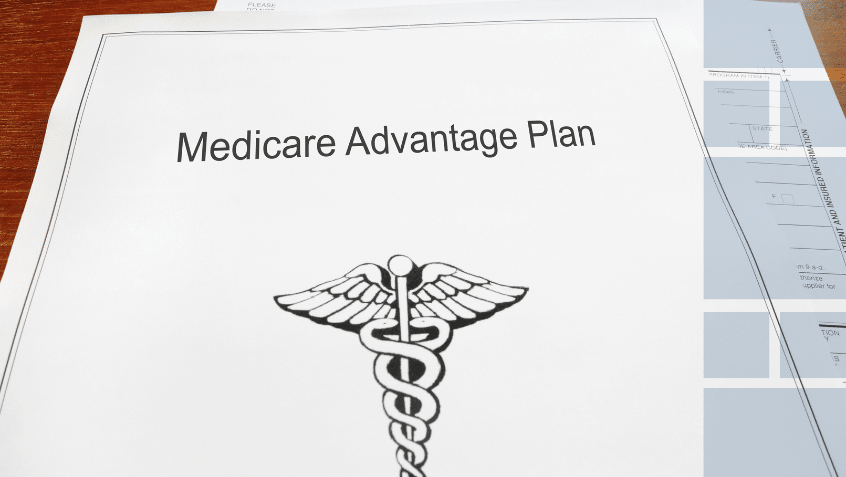Join Us Live for a Discussion on Medicare, Democracy, and the Future of Health Care
Medicare Rights Joins Advocates in Urging Medicare Advantage Reforms

This week, Medicare Rights joined 47 organizations representing people with Medicare, families, advocates, and providers in a letter thanking the U.S. Department of Health and Human Services (HHS) for the advancements in the 2025 Medicare Advantage (MA) rate announcement and urging additional action to further improve plan accountability and payment methodology.
The 2025 rate announcement, and in particular its continued phase-in of planned changes to the MA risk adjustment model, is a critical step forward. Once fully in place, those modifications will better align MA with current health care practices and yield more accurate plan payments. Yet, important reform opportunities remain.
For example, the letter notes that persistent, harmful plan practices—including inappropriate denials, aggressive utilization management, predatory marketing, and coding abuses—drive billions of dollars in overpayments each year and raise serious questions about MA care quality, equity, and value. Other MA-prevalent features, like the lack of meaningful plan transparency and oversight, an ineffective quality program, and growing evidence of adverse selection, only compound these concerns.
As the rate announcement makes changes only to payment policies and guidelines, some of these problems are beyond its scope and will require separate intervention. Others, such as upcoding—when plans record ‘paper-only’ diagnoses without providing additional care—are well within its purview and overdue for correction. Through these manipulated diagnoses, plans raise their own payments and payment inaccuracy system-wide, as well as costs for beneficiaries, taxpayers, and Medicare.
Coding exploitation is well documented, and HHS has more tools to curtail it. The letter recommends the agency do so in the following ways:
- As Medicare Rights noted in our comments, we are disappointed that HHS will again apply the statutory minimum coding adjustment in 2025, rather than a higher and more effective rate. Unchanged since 2018, this minimum amount is not keeping pace with coding intensity or the resulting excess plan payments. We strongly recommend that HHS apply a more appropriate adjustment in future years. A tiered approach could target MA plans that engage in upcoding to the greatest extent, removing their unfair and ill-gotten financial advantage over other, more rule-abiding plans.
- Independent experts agree that in-home chart reviews and health risk assessments (HRAs) are easily manipulated and represent a significant portion of coding-related overpayments. To help deter plans from using these encounters as hunting grounds for sham diagnoses, we recommend excluding information collected exclusively during these visits from MA risk score and payment calculations.
- Once upcoding occurs, it is blended with other payment factors and hard to disentangle, therefore distorting both current and future payments. Updating MA payment methodology to counter this could help disincentivize upcoding and reduce overpayments. Specifically, using two years of Original Medicare and MA data to calculate MA risk-adjusted payments could better limit the impact of erroneous diagnoses from one particular year.
Medicare Rights applauds HHS for finalizing 2025 payment rules that recognize beneficiary priorities and respond to flaws in MA financing. We strongly urge policymakers to build upon these changes to improve payment accuracy, insurer accountability, and access more fully to care.
Read the 2025 rate notice and CMS fact sheet, as well as our comments.
Read more about Medicare Advantage payments and how plans use overpayment to increase enrollment.
Show Comments
We welcome thoughtful, respectful discussion on our website. To maintain a safe and constructive environment, comments that include profanity or violent, threatening language will be hidden. We may ban commentors who repeatedly cross these guidelines.
Help Us Protect & Strengthen Medicare
Donate today and make a lasting impact
More than 67 million people rely on Medicare—but many still face barriers to the care they need. With your support, we provide free, unbiased help to people navigating Medicare and work across the country with federal and state advocates to protect Medicare’s future and address the needs of those it serves.
The Latest
Most Read
Add Medicare to Your Inbox
Sign up to receive Medicare news, policy developments, and other useful updates from the Medicare Rights.
View this profile on InstagramMedicare Rights Center (@medicarerights) • Instagram photos and videos









